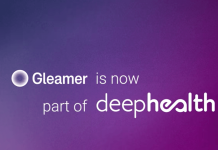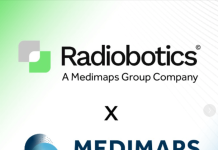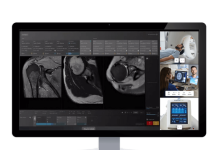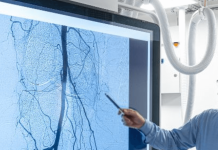Abridge has closed a $250m Series D funding raise for its AI-powered medical note platform, highlighting how investment into the generative AI (genAI) space is showing no signs of slowing.
The US startup’s Series D round was co-led by angel investor Elad Gil and venture capital company Institutional Venture Partners (IVP). The investment arms of CVS Health, and NVIDIA were among the contributors, along with nonprofits such as California Health Care Foundation.
Related: Wearable robotics MedTech REEV wins $9.2m to transform mobility assistance
Abridge emerged from stealth with a Series A1 round worth $12.5m in 2018. The company has since gone from strength to strength as it progressed through funding rounds. A $30m Series B round was followed by a $150m Series C as the company accelerated towards an $850m valuation last year.
Abridge offers a genAI-led platform that transforms medical conversations into clinically useful and billable documentation at the point of care. Notes include creating a patient illness history, a roundup of a physical exam, and a patient summary.
According to the company, the platform generates actionable insights for physicians and helps reduce administrative burden and clinician burnout. The platform integrates with electronic health records (EHRs), covers 28 languages and can be used in different healthcare settings, ranging from clinics to emergency departments.
A 2023 report by GlobalData predicts that global revenue for AI platforms across healthcare will reach $18.8bn by 2027. A main driver of the technology’s use in the market has been its ability to reduce administrative costs and free up resources elsewhere in the care setting. Abridge’s funding comes at a time when analysis by GlobalData placed importance on the AI-driven analysis EHRs now provide physicians.
More than 100 health systems across the US are currently using Abridge’s platform. Matt Kull, chief information and digital officer from healthcare company Inova, said: “The quality of speciality-specific notes and Abridge’s responsiveness to clinician feedback with rigorously tested enhancements stood out to us.”
Abridge revealed that medical centres are also using the technology, with Duke Health, Johns Hopkins, Mayo Clinic, and UNC Health all added to the company’s books in the past couple of months.
“AI can be transformative by abstracting away the complexity and rules around the revenue cycle as it pertains to documentation, allowing clinicians to focus on their patients while getting their documentation right the first time,” said IVP general partner Somesh Dash.
One of the largest players in AI’s adoption in healthcare has been US tech giant Nvidia. The company has more than 3,500 healthcare members in its Inception programme, a free framework to nurture startups and support co-marketing opportunities within AI’s scope. Some members of the ecosystem come from market segments such as Abridge’s landscape of digital health while others include the surgical robotics, imaging, and biopharma sectors.




